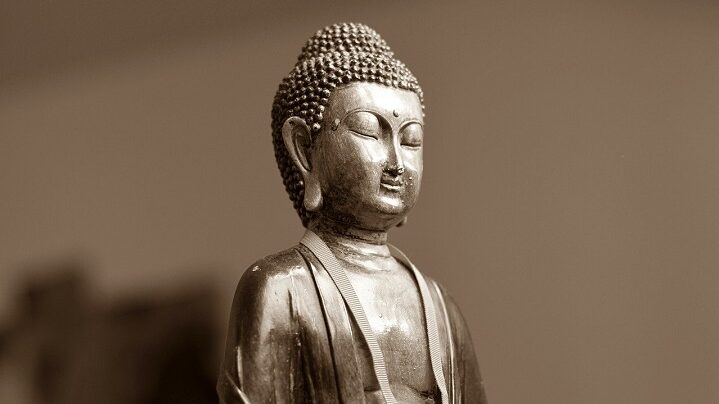Buddhism is a religious and philosophical teaching (Dharma) on spiritual awakening (bodhi) that emerged in the middle of the first millennium BC in ancient India. The founder of the doctrine is considered to be Siddhartha Gautama, who later received the name Shakyamuni Buddha.
The followers of this teaching themselves called it “Dharma” (Law, Teaching) or “Buddhadharma” (Teaching of the Buddha). The term “Buddhism” was created by Europeans in the 19th century. Various researchers have defined Buddhism in different ways – as a religion, a philosophy, an ethical teaching, a cultural tradition, a civilization, education, as a “science of consciousness.
Buddhism is a world religion, recognized by numerous peoples with different traditions.
Buddhism emerged in the middle of the first millennium B.C. in India among the Shramans, wandering ascetics and hermits. The conventional date for the emergence of Buddhism is 543 B.C., when the Buddha entered parinirvana. Most modern scholars believe the Buddha died in 486 B.C. There is also the question of shifting the period of the Buddha’s life so that the year of his death would fall between 430 and 350 B.C.
Currently, Buddhism is widespread in South, Southeast, Central Asia and the Far East and has hundreds of millions of followers. Buddhism is the state religion of Bhutan, Cambodia, Laos, Myanmar and Thailand. In Sri Lanka, Buddhism is not recognized as a state religion, but the constitution grants Buddhism “privileged status.
The Basics of Teaching
After several years of observing his own consciousness, Shakyamuni Buddha came to the conclusion that people’s suffering is caused by themselves, by their attachment to life and material possessions, by their belief in an unchanging soul, which is an attempt to create an illusion that opposes universal mutability. Ending suffering (entering nirvana) and achieving an awakening in which life is seen “as it is” can be achieved by destroying attachments and illusions of stability through the practice of self-restraint (adherence to the five precepts) and meditation.
The Buddha maintained that his teachings were not divine revelation, but were received through meditative contemplation of his own spirit and all things. The teachings are not dogma, and the results are up to the individual. The Buddha pointed out that one should accept his teachings only by testing them through one’s own experience: “Do not accept my teachings simply out of faith or out of respect for me. Just as a merchant in a bazaar tests gold by heating it, melting it, cutting it to see if it is authentic, so test my teaching, and only after you are convinced of its truth, accept it!”
Buddhism has absorbed many different beliefs and ritual practices over the two and a half thousand years in the process of spreading. Some followers of Buddhism emphasize self-discovery through meditation, others on good deeds, and still others on the worship of the Buddha. Differences in ideas and rules among the various Buddhist schools compel “the recognition as ‘Buddhism’ of any teaching considered to be Buddhist by the tradition itself.
